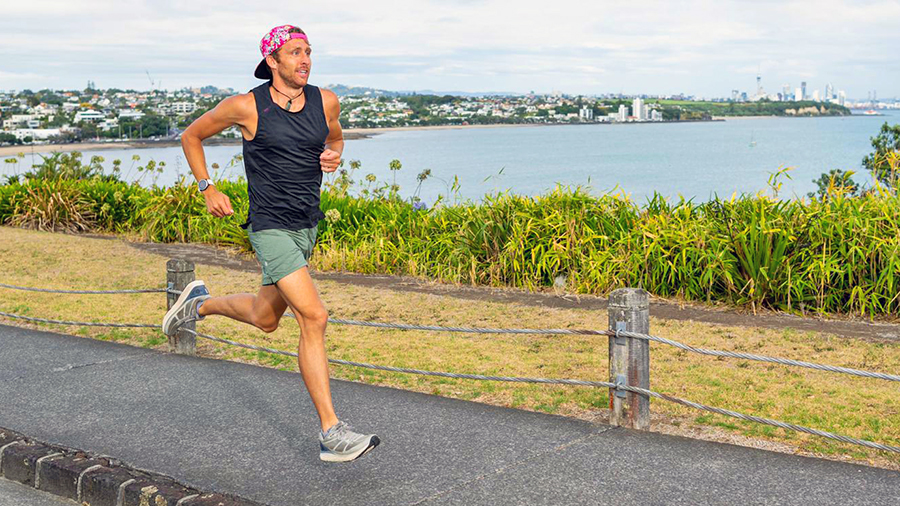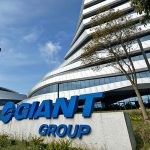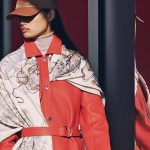Designer Brands Inc. (DBI), parent company to DSW, Topo Athletic, Keds, Hush Puppies, and other footwear brands, believes it has the right people and processes in place to move its strategy forward, but company CEO Doug Howe also said on a conference call with analysts that the company fully recognizes that it is not operating at its full potential.
“This provides us with renewed confidence during what will be a transitional year as we begin to see the benefits of new leadership and simultaneously work to right-size our cost base in anticipation of future growth,” Howe commented.
The company saw a 7.3 percent year-over-year decline in total sales in the 2023 fiscal year, despite getting an extra week to do so. Howe cited third-party research data that indicated that dollar sales in the footwear industry contracted year-over-year for both the fiscal third and fourth quarters consecutively. He said it was the first time they have seen a quarterly decline since 2020.
“This impacted us most within our U.S. Retail and Canada Retail segments as our footwear offerings are highly discretionary,” he explained.
Within the U.S. Retail segment, which represented 81.6 percent of the company’s Q4 sales and 80.5 percent of full-year sales, the business contracted 9.2 percent to $2.53 billion for the full year, compared to the 2022 fiscal year as DBI continued to operate with a seasonal mix approximately 50 percent above the market, according to Howe. U.S. Retail segment comp sales were down 9.5 percent for the year, cycling a 2.0 percent increase in fiscal 2022.
“The unseasonably warm weather we witnessed in the back half of the year contributed to softness in our seasonal offerings and as a result, we instituted necessary promotions to ensure that we exited the quarter with healthy levels of inventory,” he shared.
During the 2023 fourth quarter, consolidated sales across all segments came in at $754.3 million, a decrease of 0.8 percent versus the 2022 fourth quarter, with January and the 14th week specifically providing a boost to the U.S. Retail and Canada Retail segments as the seasonal category rebounded. The 14th week generated $42.5 million in sales.
Comparable store sales were down 7.3 percent on a 13-week comparable basis.
U.S. Retail sales were down 2.7 percent to $630.8 million for the fourth quarter. Comps were down 7.4 percent for the quarter on a 13-week basis, cycling an 8.1 percent comp sales decline in the prior-year Q4 period. The negative comps were said to be primarily driven by weaker performance in the Seasonal business, slightly offset by stronger sales in the Casual, Athletic, and Athleisure offerings.
Canada Retail sales declined 2.9 percent to $64.4 million for the quarter, posting a comp sales decline of 9.2 percent on a 13-week basis that cycled against a 15.9 percent comp sales growth in the 2022 fourth quarter.
Brand Portfolio sales jumped 37.7 percent to $77.1 million in the quarter, thanks in large part to brands acquired during the year. The segments direct-to-consumer (DTC) channel posted a 5.9 percent comp sales gain for the period on a 13-week basis, on top of the 44.4 percent comp sales increase in the prior-year period.
“While this seasonal rebound was not enough to offset the challenges we experienced in the fall, we did see some bright spots throughout our assortment,” Howe added. “Contrary to the reduced demand we experienced in Dress and Seasonal [offerings], customers continued to lean into Casual and Athletic.” He said categories saw positive comps during the fourth quarter.
“Notably, Kids Athletic sales were up 15 percent compared to the fourth quarter of 2022, in part due to the return of Nike,” he noted.
Howe said the Q4 results are less indicative of the exciting strength that are seeing in Casual and Athletic, given they remain under-penetrated in these growing segments.
“We acknowledge our overall performance was lacking and we are laser-focused on moving swiftly to evolve our product offerings and reinvigorate our assortment,” he said. “At this point, we are encouraged by the comp sales performance we’re seeing [first] quarter-to-date. We anticipate comps will improve throughout 2024 and expect an inflection in the second half as we lap a weak Q3 2023.”
Still, he did say there is a high degree of uncertainty headed into 2024, given the discretionary nature of footwear, the uncertain macro environment, the upcoming 2024 U.S. elections, and ongoing international conflicts.
“But we are continuing to address the items within our control that are most immediately impactful to our turnaround,” he committed.
“Over the past year, we set out to expand our penetration in Casual and Athleisure, both in our retail offerings and our brand portfolio, given the significant white space opportunities,” Howe shared. “We made notable progress driven by recent acquisitions. Our newest Athleisure brands, Keds and Topo, will remain key growth drivers of our brand portfolio and we expect to accelerate distribution and awareness of all of our brands over the coming years.”
Howe said the brand journey is still in its early innings and they believe the recent appointment of Andrea O’Donnell as Brands President is the catalyst that will take the business to the next level.
“Andrea brings proven scaled footwear and brand building experience to our business for the first time,” Howe highlighted. “Her experience at Deckers, where she led the expansion of the Ugg and Koolaburra brands, is indispensable as we strategically plan the next phase of growth for our brands that have been relatively flat over recent years. Her experience as the CEO of apparel brand Everlane is also immediately additive to the organization. She has the know-how to evolve our current design and marketing capabilities because she understands that each brand brings a specific and unique end customer.”
“With Andrea’s leadership, we plan to build robust brand plans with key distribution partners, fueling long-term growth plans that are informed, robust and aligned to our strategy”, Howe continued. “One of Andrea’s initial areas of focus is to optimize and streamline our current infrastructure to support and grow our brands.”
He said this includes finding leverage and efficiencies across the brand portfolio segment as well as across shared infrastructure within the retail segments.
“Our current brand portfolio has grown through multiple acquisitions, each bringing its own architecture,” Howe noted. “As a result, we have an amalgamation of disparate systems, processes and roles supporting each of our brands in different ways, often creating inefficiencies and at times hampering growth. Rationalizing the way we are working internally will be critical in setting a proper foundation for Andrea’s growth plans.”
Keds
Howe said the company is pleased with the progress it has made since acquiring the “nostalgic Americana brand” and largely exiting the Wolverine Transition Services Agreement.
“This has been an intensive effort, but we are thrilled to have reached this milestone,” he said. “With only a few remaining components scheduled to transition, we are excited about the growth prospects this brand can bring to our brand portfolio once it is fully integrated into our DBI ecosystem.
Topo Athletic
The running brand DBI acquired in December 2022 reportedly had a strong first year, with total sales growing sequentially by quarter throughout the year.
“This franchise-driven brand has a robust innovation pipeline and is focused on opening new wholesale accounts to build awareness and increase customer conversion,” he commented.
Hush Puppies
DBI signed an exclusive North American distribution contract midway through fiscal 2023 and Howe said they are very excited about the new assortment currently making its way to the market.
“While this brand is undergoing a relaunch here in the U.S. and is still sold exclusively at DSW, it has a very strong reputation globally and we are excited about the unique elements it brings to our portfolio,” he noted.
While he outlined the progress made in 2023 bringing Casual and Athletic into the Brand Portfolio, he said they are also laser-focused on continuing to build upon the strong relationship with national brands in the company’s retail segments and are seeing incremental progress under explored leadership at DSW. None are more important than Nike.
“In September, we welcomed Nike back into our channels and within a few months, Nike sales penetration neared pre-COVID levels,” Howe shared. “Being able to offer the largest athletic brand to our customers, shopping for men’s, women’s and kids is a tailwind as we ramp up our Casual and Athletic offerings across our entire assortment.”
Beyond the return of Nike, Howe noted that new DSW President Laura Denk is actively re-engaging with other key national brands such as Skechers, Birkenstock and New Balance.
“Her objective is to build stronger relationships with brand partners and work side by side to develop growth targets and secure styles that customers are demanding,” he said. “Having recently sat down to discuss DSW’s merchandising strategy with our top brands for 2024, it is clear that leading brands want to be part of the DSW conversation.”
He said they are well positioned for spring and summer with all the newness to come.
“Our teams have built a strong assortment and we are seeing encouraging results in casual, athletic and kids,” he assured the call participants. “We will continue to seek opportunistic ways to drive newness to our customers, including accessing new styles from long-standing vendors as well as pursuing closeout opportunities with premium brands.”
Howe said Denk is focused on strategically enhancing DSW’s in-store and digital shopping experiences, including simplified pricing and promotions as well as selectively updating aspects of brick-and-mortar stores such as LED lighting, painting, hardwood flooring and decor to make the in-store shopping experience even more inviting and enjoyable.
“As part of our recent marketing investments, we are also making updates to our Canada retail operations under the leadership of [Designer Brands Canada President] Mary Turner,” he offered. “In 2023, we completed a rebranding exercise for The Shoe Company in Canada and will begin full implementation of the rebranding at the end of this month, both digitally and in new storefronts.”
He said they are also further leveraging their existing digital capabilities at DSW, which they anticipate will be a significant driver of sales growth in Canada in 2024.
“Finally, we are eager to see the expansion of Shoe Company stores in Canada as we continue to penetrate an attractive market with plans to add eight net new stores in 2024,” he suggested.
Company CFO Jared Poff gave a nod to the entire DBI team, and especially to the three presidents of the company’s operating segments. “We delivered solid fourth quarter results that contributed to full year 2023 performance at the upper end of our guidance,” he offered.
He said despite the improvements Howe discussed, they company posted a net loss for the fourth quarter and negatively impacted full year adjusted earnings per share.
- Consolidated gross margin was 27.5 percent of sales in the fourth quarter, a decrease 170 basis points versus the prior-year Q4 period, which was said to be primarily driven by promotions.
- Fourth quarter Adjusted SG&A was 31.8 percent of sales compared to 27.5 percent in the prior-year period.
- Fourth quarter Adjusted operating loss was $30.2 million, which includes $6.6 million in additional operating income generated in the extra week, compared to a $15.1 million profit in the prior-year quarter.
- In the fourth quarter of 2023, DBI had $9.9 million of net interest expense compared to $4.3 million in the prior-year Q4 period.
Poff said the company’s fourth quarter Adjusted net loss was $25.3 million, or a loss of 44 cents per diluted share. Weaker performance along with higher interest expense culminated in a lower diluted EPS compared to the 7 cents per share in fourth quarter of 2022.
Full Year Income Statement
Full year 2023 net sales were $3.08 billion in fiscal 2023, down 7.3 percent versus the prior year and down 9 percent on a comparable 52-week basis. Poff attributed the shortfall to continued macro pressures, a highly promotional retail environment and the impact of warm weather on the Seasonal footwear business. For the full year, U.S. retail comps were down 9.5 percent. The 53rd week generated $42.5 million in sales.
U.S. Retail comps were down 9.5 percent for the year, cycling a 2.0 percent gain in 2022.
Canada Retail comps were down 5.9 percent for the full year following a very strong 2022, which saw comps up nearly 30 percent as a result of the phasing of Canada’s post-COVID recovery.
Brand Portfolio full year 2023 sales were up 6.5 percent to $49.0 million. Poff said the growth was driven primarily by the acquisition of Keds, Topo Athletic and the launch of Le Tigre.
“The performance of vincecamuto.com continued to gain momentum with comps up 5.9 percent in the quarter, lapping an already strong year,” the CFO added. “Full year performance for vincecamuto.com was also solid with comps up 6 percent versus the prior year as new wide-calf boot offerings developed traction with our customers.”
Full year 2023 consolidated gross margin was 31.7 percent of sales, compared to 32.6 percent in 2022, a decrease of 90 basis points year-over-year. Poff reminded everyone that the company has expanded its gross margin over 300 basis points since pre-COVID.
Adjusted SG&A for fiscal 2023 was 29.1 percent of sales, compared to 26.6 percent in 2022.
“As previously highlighted, this deleveraging was largely a result of a declining top line coupled with the increases in underlying fixed expenses as a result of several acquisitions we completed in 2023,” Poff said. “As Doug noted, we are examining all areas of the organization to identify cost savings, efficiencies and synergies within our infrastructure and administrative support.”
For the full year 2023, adjusted operating profit was reportedly $89.6 million, compared with $207.5 million in fiscal 2022
Interest expense was $32.2 million for the full year, compared with $14.9 million in the prior year.
“Our higher interest is a direct result of the term loan we installed during the year as well as higher average borrowings on our ABL at higher interest rates,” Poff added. “Our effective tax rate for the fourth quarter on our Adjusted results was 37 percent compared to 56.7 percent last year. For the year, our effective tax rate was 24.8 percent, which was below last year’s 30.6 percent.”
Full year Adjusted net income was $43.2 million, or 68 cents per diluted share, in fiscal 2023, compared to $133.7 million, or $1.85 per share, in 2022. Poff said the fourth quarter adjusted earnings per share loss of 44 cents negatively impacting the full year Adjusted earnings per share.
Balance Sheet and Cash Management
DBI ended the year with inventories down 5.7 percent versus the prior year-end, as it continues to emphasize a clean inventory position, and prioritize placement, of the newest product.
Brand portfolio inventory ended the fourth quarter down 8 percent, and adjusted for the acquisition of Topo and Keds, inventory would have been down 23 percent, to the prior year.
“We feel good about our inventory levels heading into the new fiscal year, and our strong balance sheet, provides us flexibility to continue, to chase and take action on opportunistic buys.” Poff noted. “As I highlighted on our third quarter earnings call, we strategically deployed significant promotions during the Black Friday and Cyber Monday period, to clear through seasonal product, and right size our inventory positions, to prepare for a revitalized selection heading into the spring season. As we continue to shift our assortment mix, to include more of the brands we know our customers desire, we anticipate we will drive higher sell-throughs and faster inventory turns, ultimately giving customers newness, each time they shop at DSW.”
Poff said Designer Brands Inc. returned $114.3 million to shareholders in fiscal 2023, through a combination of dividends and share repurchases.
“During the year, we repurchased an aggregate 9.7 million Class A common shares, at an aggregate cost of $102.2 million and paid $12.2 million in dividends,” he said, also noting that as of February 3, 2024, $87.7 million remained available, under the share repurchase program, which has no set expiration date.
“We have also once again, reaffirmed our commitment to returning cash to shareholders, declaring a $0.05 per share dividend for the first quarter of 2024,” the CFO added.
“I’m proud that Designer Brands, was able to generate strong cash flows, and shore up our balance sheet during 2023, despite the sales headwinds,” Poff shared. “For the full year, we generated $107.4 million of free cash flow, defined as cash provided by operating activities less cash paid for property and equipment, reflecting a strong cash conversion rate, and the resiliency of our business, amidst macro headwinds.”
DBI ended fiscal 2023 with $49.2 million of cash and total liquidity, which includes cash and availability under a revolver, was $210.1 million.
“As a reminder, we continue to await the receipt of the remaining $40 million of our CARES Act tax refund, due to us from the IRS. This refund has cleared all audits, and is simply awaiting funding, by the U.S. Treasury,” Poff noted.
On January 29, 2024, DBI reportedly borrowed the remaining $60 million available under a new term loan.
“We remain well inside of all covenants, and have strong relationships, with all of our credit providers,” he said. “Total debt outstanding was $434.2 million as of the end of the fourth quarter.”
“Before I close, I want to again state how excited I am about what lies ahead for us,” said Howe in wrapping up his prepared comments. “I continue to believe that the unique combination of our store network and our strategic and growing portfolio of nationally distributed brands is a true competitive advantage. The pairing of our extensive retail store fleet and logistics networks, together with our own brands portfolio provides Designer Brands with the opportunity to harness operational and financial synergies many peers simply cannot match.”
Looking ahead to 2024 specifically, Howe said the company expects net sales to improve throughout the balance of the year as the team continues to implement the strategic initiatives discussed.
“There are a variety of unknowns as we enter 2024, but we continue to believe that effectively managing the factors that are under our control will position us well to deliver on our guidance. I am truly excited about the direction in which we are headed and the opportunities for growth remain both tremendous and attainable,” Howe concluded.
Outlook
Before running everyone through the company’s 2024 outlook, Poff provides an update on changes the company is implementing within the Brand Portfolio segment to move towards a consistent approach to selling its own brands to its other segments.
“As it stands today, certain own brands and our segment sales are recorded as wholesale sales, with a corresponding gross profit identical to sales made to external wholesale customers,” Poff outlined. “At the same time, certain other own brands are recorded as commission income, based on the product being designed, by our brands portfolio segment at a commission rate, but the product is direct ordered by our retail segments from the factories. Starting in the first quarter of fiscal 2024, we plan to transition inter-segment commission income transactions, to a standardized and streamlined approach and transact as wholesale sales, with an attributable gross margin.”
He said the resulting reported sales, as well as gross profit, will increase for the Brand Portfolio segment, while the U.S. Retail segment will have lower gross margin upon selling through to the end customer as its inventory cost basis will be higher. On a total DBI basis, Poff said there is no change, due to consolidation through inter-company eliminations.
“While this does not change our ultimate consolidated financial results, it will provide our teams, with greater clarity and consistency in the business planning, and execution process at the brand level,” he said.
For full year 2024, DBI is anticipating this change will add approximately $70 million of sales and $20 million of gross profit to the Brand Portfolio segment’s reported operations. It will also increase the amount of sales and gross profit that is eliminated in consolidation as captured separately from the reported segments results.
Turning to guidance, DBI expects net sales growth in the low single digits versus the prior year, even when considering the headwind of the sales recorded in the 53rd week of 2023.
“We also expect comparable sales, to be up low single-digits, improving sequentially as the year progresses,” Poff added. “The accelerating comp growth, is expected to be driven, by our new assortment strategy increasingly coming to life in our stores, as well as an assumed continuance of improved DSW awareness, as a result of optimized marketing. And while our comparable sales growth, is expected to improve sequentially throughout the year, the 53rd week last year adds a bit of calendarization volatility to our quarterly year-over-year sales growth, with key selling weeks sometimes falling in non-comparable quarters, and of course the loss of an entire selling week in Q4. This results in Q3, being projected as our strongest growth quarter and Q4, to be our weakest.”
DBI anticipates sales in the Brand Portfolio segment will increase mid single digits for the year, driven by double-digit DTC growth and key wholesale growth, especially at Topo Athletic and Hush Puppies, excluding the impact of the change in selling approach.
Turning to factors impacting our profitability, while we are not providing detailed P&L line guidance, directionally, I want to help build a bridge from our top line sales, to net income.
The company is anticipating the gross profit rate to be relatively flat-to-slightly-up to 2023, as fewer promotional markdowns help to mitigate some of the lower merchandise margin associated with increasing penetration of key national athletic brands within the DSW assortment.
“We also expect to see slight expense leverage in our SG&A ratio, as we are aggressively pursuing, identifying, and unlocking efficiencies, across the organization, while reinvesting in key areas such as marketing, personnel, and technology,” Poff suggested. “We anticipate an effective tax rate of roughly 30 percent for fiscal 2024.”
EPS is forecast to be in the range of 70 cents to 80 cents per share for the year, representing a roughly 10 percent increase at the midpoint, when compared to the 2023 results.
“For the reasons mentioned previously, including sequential top-line improvement as a result of our retail assortment changes, as well as the deployment of some of the expense initiatives not starting to materialize until Q2, we anticipate our EPS growth over last year, to be negative in the first half of the year, with healthy year-over-year growth in the second half,” the CFO concluded.
Capital expenditures are estimated to be in the range of $65 million to $75 million for the year.
Image courtesy Topo Athletics and Brand Ambassador Zac Marion
















